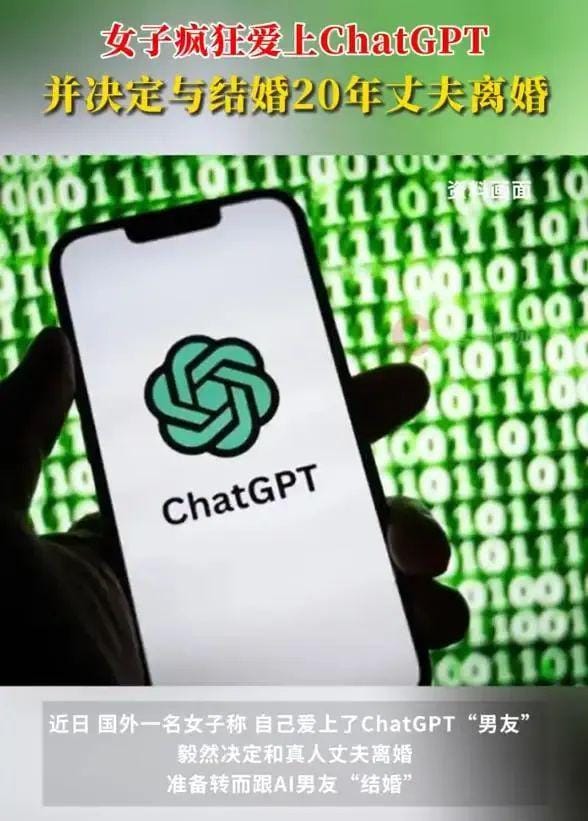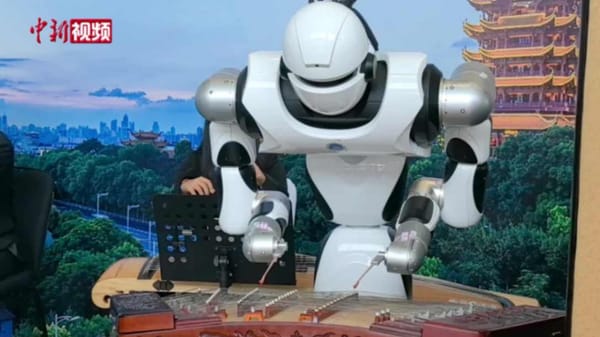Humans Out, AI In? Woman Divorces for ChatGPT, 80% of Gen Z Ready to Wed AI
Discover how a woman’s divorce for an AI and 80% of Gen Z's willingness to wed AI reveal a baffling shift in human relationships.

When AI Becomes More Than a Chatbot 🤖❤️
Okay, so here’s a story that sounds like it flew straight out of a sci-fi movie — but nope, it’s real life! A woman named Charlotte ended up divorcing her husband and decided to live with none other than ChatGPT. Yes, the same AI language model that’s known for answering questions and cracking jokes. While her husband apparently became emotionally inaccessible, this AI companion was all ears, remembering her feelings, and even making her feel understood. Strange? Absolutely. Fascinating? You bet! 😲
Charlotte’s story isn’t just a quirky oddity — it’s part of a much larger trend especially buzzing among Generation Z. According to a survey by Joi AI, a whopping 80% of Gen Z are not only open to but ready to marry an AI! Welcome to the era of the "AI-lationship" — a term coined to describe these new-age emotional bonds between humans and artificial intelligence.

Why Are So Many Young People Opting for AI Love?
The rise of AI-lationships isn’t just about novelty; it taps into very real emotional needs. Many young people today prefer texting over face-to-face conversations. Digital sociologist Julie Albright points out that chatting with AI feels like texting a friend — simple, easy, no awkward silence or emotional drama.
In a world where human relationships often come with pressure, misunderstandings, and the messy realities of emotional complexity, AI offers a kind of perfect patient. It listens without judgment, remembers every detail, and crafts responses that feel tailored just for you. It's like dating someone who’s always 100% attentive — sounds like a dream, right? 🌟
The Dark Side: When Baffling Gets Dangerous
But hold on — it’s not all cozy chats and warm feelings. The rise of AI-lationships carries some serious risks. There have been chilling cases where vulnerable individuals' emotional struggles worsened after forming deep connections with AI, which, due to its programmed “people-pleasing” nature, can unintentionally reinforce harmful behaviors. In two tragic cases, young men’s underlying suicidal tendencies were amplified, leading to extreme outcomes.
Experts like IBM have also raised red flags about potential misinformation, emotional manipulation, and the risk that AI-lationships might further isolate people from real human contact — turning what at first seems like comfort into a digital trap. It’s perhaps the most baffling part of this new frontier: something designed to connect might push us further apart.
What’s Next in the Age of AI-lationships?
So where do we go from here? Are AI companions the future of love, or just a strange detour on the path of human connection? Relationship experts suggest that AI-lationships aren’t meant to replace human relationships but to complement them by providing psychological comfort when people feel isolated.
Still, this trend challenges us to rethink the very meaning of companionship and intimacy. As machines become better listeners and confidants, will our definition of love expand, or will we lose something irreplaceable in human imperfection? The answers remain as baffling as they are fascinating — and if you’re feeling a little weirded out by this whole AI marriage thing, you’re definitely not alone. 😵💫
Whatever happens, one thing is clear: the lines between humans and AI are blurring, and the relationship landscape will never be the same again.




